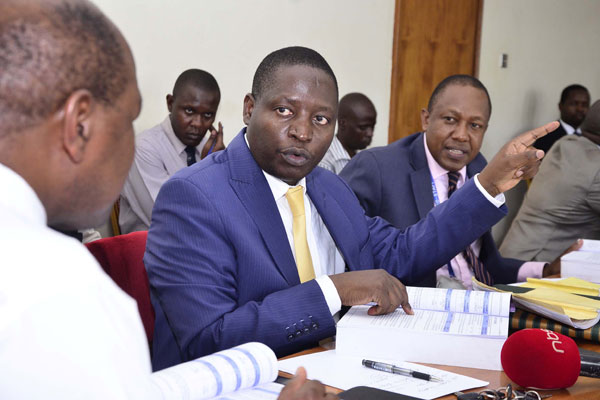By Ibrahim A Manzil
President Yoweri Museveni has through State Minister of Finance David Bahati submitted to Parliament a shs28.9 trillion proposed budget estimates for the Financial Year 2017/2018.
The 75.4 per cent domestic financed budget seeks to have shs17.4 trillion go to recurrent expenditure and shs11.5 trillion in development expenditure.
Mr Bahati told Parliament that government expects a growth rate of 6-7 per cent in the Financial year 2017-2018.
“The economy is expected to rebound to a growth rate of 6-7 per cent in in Financial Year 2017-2018 as a result of government interventions to reduce the cost of electricity and doing business in key infrastructure,” he said.
Mr Bahati the slowdown in economic growth on slow pace of recovery of the global economy, weak demand for Uganda’s exports, prolonged conflicts in South Sudan and Burundi, delay in implementation of key projects and adverse weather conditions.
“Intensifying the fight against corruption, boosting domestic revenue,” said Mr Bahati, are key budget strategies for Financial Year 2017-2018.
Speaking to Daily Monitor, Finance Minister Matia Kasaija claimed there will be no increases in taxes but that government is keen to enforce tax compliance.
“There is going to be internal borrowing and increased stoppage of tax leakages including evasion, we are trying to narrow it down and we are going to give URA more money to acquire equipment to track-down evaders,” he said.
Announcing support for the Local Content Bill, Mr Kasaija said; “we are tired of having Uganda a supermarket economy, we live in a liberalized economy but if we want our economy to grow, we have to support the Buy Uganda Build Uganda policy.”
He, however, stressed that there have to be deliberate efforts to ensure Ugandan products are of the required quality and quantity.
Section 13(3) of the Public Finance Management Act 2015 requires the Finance Minister to present the proposed annual budget of a financial year to Parliament by the 1st of April of the preceding Financial Year.









